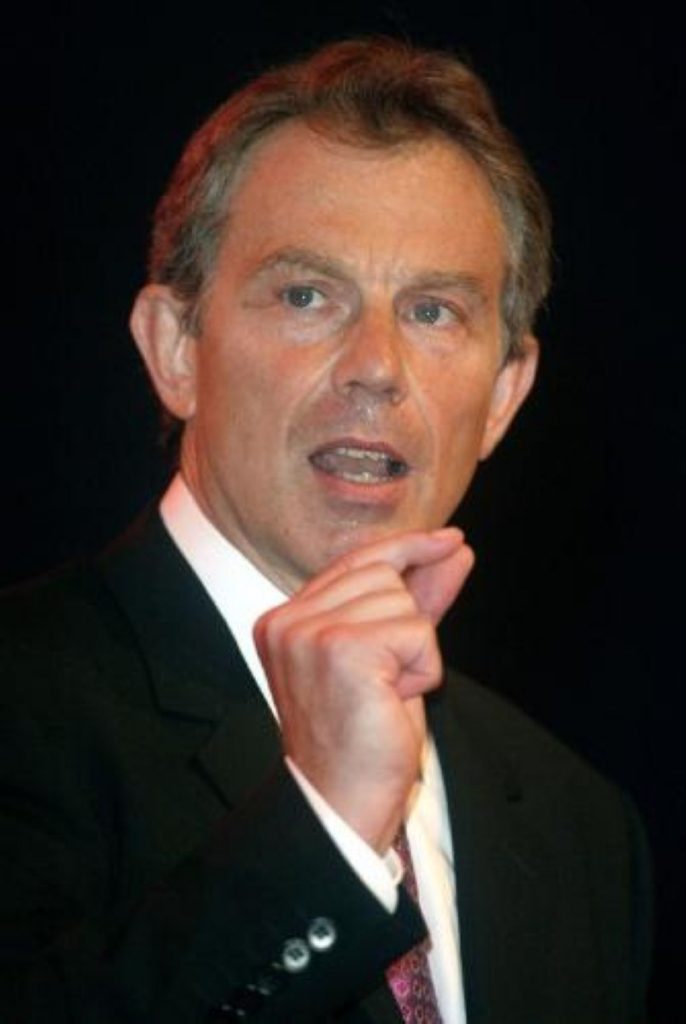Blair: Removing Saddam was not a mistake
In a robust defence of his actions prior to the war in Iraq, the Prime Minister has said that removing Saddam from power was the right thing to.
Responding in the Commons to Lord Butler’s report into intelligence gathering and usage into Weapons of Mass Destruction (WMD), Tony Blair told MPs “no one lied, no one made up the intelligence, no one inserted things into the dossier against the advice of the intelligence agencies’ following the publication of the Butler Report.”
“I accept the Report’s conclusions in full. Any mistakes made should not be laid at the door of our intelligence and security community. They do a tremendous job for our country.
“I accept full personal responsibility for the way the issue was presented and therefore for any errors made.”


“I can honestly say I have never had to make a harder judgement. But in the end, my judgement was that after September 11th, we could no longer run the risk; that instead of waiting for the potential threat of terrorism and WMD to come together, we had to get out and get after it.”
Seeking to end questions over his, and the Government’s, integrity, Mr Blair emphasised “The report specifically supports the conclusions of Lord Hutton’s inquiry about the good faith of the intelligence services and the Government in compiling the September 2002 dossier.”
He highlighted the report’s conclusion that Saddam Hussein did have the “strategic intention of resuming the pursuit of prohibited weapons programmes, including if possible its nuclear weapons programme, when United Nations inspection regimes were relaxed and sanctions were eroded or lifted.”
Mr Blair admitted that “I expected to find actual usable, chemical or biological weapons shortly after we entered Iraq. We even made significant contingency plans in respect of their use against our troops.”
“But I have to accept: as the months have passed, it seems increasingly clear that at the time of invasion Saddam did not have stockpiles of chemical or biological weapons ready to deploy.
“The second issue is therefore this: even if we acted in perfectly good faith, is it now the case that in the absence of stockpiles of weapons ready to deploy, the threat was misconceived and therefore the war was unjustified?
“I have searched my conscience, not in a spirit of obstinacy; but in genuine reconsideration in the light of what we now know, in answer to that question.”
“As I shall say later: for any mistakes, made, as the report finds, in good faith I of course take full responsibility, but I cannot honestly say I believe getting rid of Saddam was a mistake at all. Iraq, the region, the wider world is a better and safer place without Saddam.”
“He had no intention of ever co-operating fully with the inspectors; and he was going to start up again the moment the troops and the inspectors departed; or the sanctions eroded.
“And I say further: that had we backed down in respect of Saddam, we would never have taken the stand we needed to take on WMD, never have got the progress for example on Libya, that we achieved; and we would have left Saddam in charge of Iraq, with every malign intent and capability still in place and every dictator with the same intent everywhere immeasurably emboldened.”
Outlining his thinking behind the need to take action on Iraq, Mr Blair pointed to the increasing proliferation of chemical and biological weapons, the growth of radical Islamic terrorist groups and the 9/11 attacks saying: “I took the view then and stand by it now that no Prime Minister faced with this evidence could responsibly afford to ignore it.
“After September 11th, it was time to take an active as opposed to reactive position on the whole question of WMD.”

